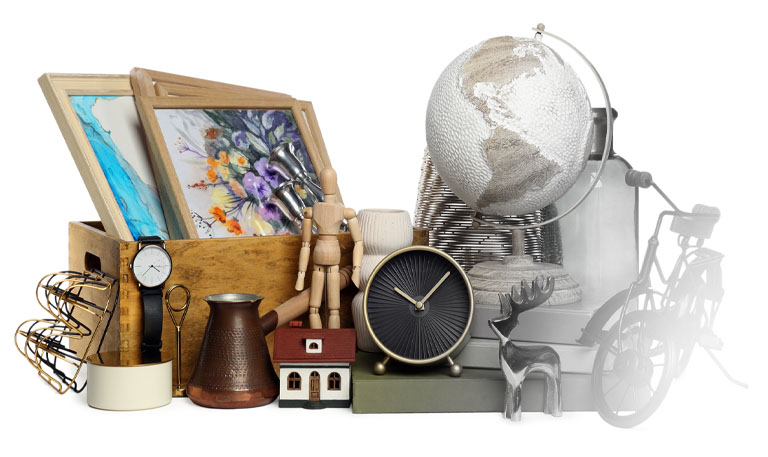The concept of Swedish death cleaning is working on eliminating unnecessary items from your home before you die to make it easier on your loved ones. But letting go of possessions— giving with warm hands—can free you as well.
At some point, we all come to the realization that our time on earth is finite. That’s just how life is. For many of us, this realization is a wake-up call—a reminder to start living more fully and to experience things that we’ve only ever dreamed of doing.
A few years ago, before moving to the West Coast to begin what I knew would be the final chapters of my life, I noticed that all the possessions I’d accumulated in my life had become a burden and were keeping me from moving forward.
Although I’ve never considered myself materialistic, I was surprised by how much I owned. My belongings ranged from keepsakes collected during travels and vacations to family heirlooms, jewelry, and gifts from loved ones. Much of it held sentimental value—artwork created by friends, treasures salvaged from dumpsters, or tokens from memorable adventures. Each item told a story, reminding me of people who had died, relationships that had ended, and journeys I had undertaken.
Having these possessions constantly reminding me of my past weighed me down. I felt burdened by my own narrative. My life story had become an encumbrance. It was like being caught in a web of memories. I was entangled in the past and couldn’t move forward. So, I decided to give away all my valuables and as many of my worldly goods as possible, leaving only those things that were necessary for day-to-day life and my work. I no longer wanted to be attached to anything that held me back or needed safeguarding. I didn’t want to have to be concerned about what would happen to my precious things if I were to die unexpectedly.
Thus, I began to live as if to die. I spent the next year and half sorting through my possessions and thinking of the people whom I would want to have them. But instead of waiting to die, I shipped them to those people or gave them away in person. I was told I was crazy to give away my valuables when I could sell them and use the proceeds to pay my bills or go on vacation. Of course, that made sense, but that’s not what I wanted to do. It was important to me that I give them away.
This process took time. When I told my therapist that I was “living as if to die,” he became concerned that I might be planning to end my life. More than a few friends and family members to whom I gave things also expressed this worry. For most people, having property and things of value is a sign of success, or, at the very least, evidence of having lived well. For me to no longer want my things was a cause for alarm.
Giving away my valuables freed me from my past.
Without the weight of possessions laden with memories and emotions, I felt unexpectedly lighter. Freed from their pull, I found myself more grounded in the present, no longer distracted by the past. This newfound presence compelled me to confront reality head-on—an experience that was often challenging or even painful, but ultimately transformative.
My life story was no longer my yesterday, but rather, my today.
These days, I no longer hold onto the past, grasping at either the sadness or the joy as an excuse for not living in the now. By letting go of my narrative and the objects that represented it, I created space for something deeper. In the absence of distractions, I’m more attuned to the unseen sources that sustain life and animate all of creation. The less I have, the easier it is for me to sense the greater reality and the clearer my sense of purpose becomes.
This journey wasn’t instantaneous or easy. It took time and is still ongoing. But now, I live each day with a renewed sense of clarity and presence.
When the end of my life does come, I hope to leave this world with nothing—unburdened, unattached, and fully aware of where I’m going.
Stephen Sinclair holds a Master of Divinity from Meadville Lombard Theological School in Chicago and is an ordained Unitarian Universalist minister. He’s been a pastor and chaplain in numbers of churches and hospitals in the U.S. and has worked with the homeless. He lives on Capitol Hill in Seattle.


